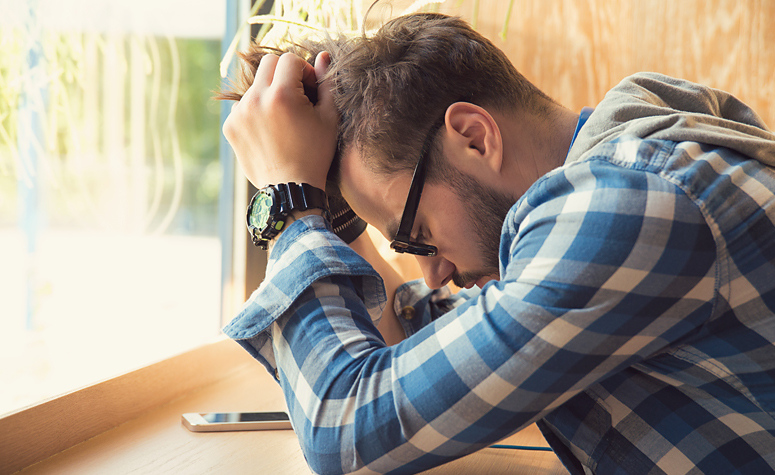Drug Withdrawal:
Symptoms, Timeline and Treatment
Discover the indicators to be mindful of during the drug withdrawal phase, alongside the potential duration of the withdrawal period you may encounter.
Drug withdrawal is the series of physical responses your body undergoes when you attempt to stop using drugs or find yourself unable to use them for any reason. This situation might occur if your supply has run out or you’ve been unable to obtain more.
When you consume drugs, your brain and body adjust to having these substances in your system. Over time, your system becomes accustomed to their presence. If you then cease or significantly cut down your drug use, you could face a variety of uncomfortable and sometimes risky withdrawal symptoms.
Here, we aim to cover the symptoms associated with drug withdrawal, outline what a typical withdrawal timeline looks like, and highlight the importance of undergoing withdrawal in a secure in a secure, medically supported environment.

What are the Signs of Drug Withdrawal?
The intensity and type of withdrawal symptoms you experience can vary based on several factors, including:
- The length of time you’ve been using the drug
- The specific substance you’re addicted to
- The quantity of the substance you’ve been consuming
- How you’ve been taking the drug. Using methods like snorting, smoking, and injecting tend to lead to more severe withdrawal symptoms than oral consumption
- The use of multiple drug types simultaneously
- Genetic factors and family history
- Your overall physical and mental health state
The earliest sign of withdrawal is what’s often referred to as the drug comedown. This phase occurs as the immediate effects of the drug start to fade, and your brain begins to return to its normal state.
Following this comedown, if no further drugs are consumed, drug withdrawal symptoms will begin to manifest. Symptoms of withdrawing from drugs and alcohol usually involve a range of physical and mental effects, such as:
- Feeling sick and vomiting
- Experiencing headaches
- Having a high temperature and/or feeling cold
- Heart palpitations
- Sweating a lot
- Shivering or shaking
- Feeling restless
- Experiencing depression
- Feeling anxious
- Feeling paranoid
- Trouble sleeping
- Having panic attacks
- Feeling irritable and easily upset
- Strong cravings for the drug

Among the most severe withdrawal symptoms, identified as ‘delirium tremens’ (DTs), are:
- Hallucinations
- Seizure episodes
- Delirium tremens (DT’s)
If not handled correctly, these symptoms can lead to significant, lasting health problems and are potentially life-threatening.
Not every person will experience drug withdrawal the same. Some individuals will display certain symptoms but not others. Therefore, it is extremely important that you remain vigilant and call the medical experts the second you have a suspicion of something serious regarding either you or your loved ones.
How Long do Withdrawal Symptoms Last?
Withdrawal, though temporary, can bring significant discomfort and unease. The duration of withdrawal symptoms varies significantly from one individual to another. In most cases, symptoms start to appear within the first 24 hours after taking the drug. The intensity of withdrawal symptoms often peaks during the initial 48 hours. Following around 48 to 72 hours after stopping the drug, some individuals may experience delirium tremens (DT’s), a severe reaction to withdrawal.
However, withdrawal symptoms gradually become less severe as your body adjusts to the absence of the drug, with the entire process usually concluding within 7 to 10 days.

Fast Access to Residential Treatment
We are currently able to offer fast access to private inpatient treatment.
Please call us today and speak to one of our expert advisors.
Call today in confidence: 0800 0148 970
Medically assisted drug withdrawal?
If you’re considering ending drug use to break free from your mental and physical dependence, it’s crucial to seek professional assistance during the withdrawal process.
Without the guidance of specialists, managing withdrawal symptoms on your own can be challenging and may lead to further drug use to alleviate those symptoms.
Moreover, withdrawal can also present significant risks, highlighting the need for highly qualified supervision by a dedicated multidisciplinary team to ensure your safety throughout the process.
At AddictionRehab, we provide support through every step of the drug withdrawal journey as part of our all-inclusive, medically assisted drug detoxification programme. This programme is a key component of our addiction treatment and involves the systematic removal of all traces of the drug from your body within a controlled clinical environment, overseen by our experienced medical professionals. We offer medication and medical interventions as required, to ease your withdrawal symptoms and make the process as smooth and safe as possible.
You don’t have to face drug addiction and withdrawal alone, professional help is within reach. Get in touch with us today to learn how we can assist you in safely stopping drug use and achieving a life free from addiction.

Appropriate therapy
Once you’re physically stable, you’ll have the opportunity to participate in our intensive group therapy programme for drug addiction. This programme helps you develop effective coping strategies, understand the underlying reasons for your addiction, and start moving towards a better future.
Despite detox being effective, inpatient care through CBT must continue. Otherwise, there is a risk of relapsing back into addictive behaviour. Unless you know what causes or triggers their addictive impulses, they won’t be able to address them and begin the important process of recovery and corrective behaviour. Anything can act as a trigger, from past trauma to stressful life situations that could make you relapse once again.
One key element that makes therapy effective is the fact that patients develop coping mechanisms and strategies to keep their triggers in check and eventually even overcome them. It’s a form of treatment wherein the individual becomes more resilient than before and applies healthy, constructive practices to improve their physical and psychological well-being.
Therapies can consist of one-on-one discussions with a licensed therapist, but group sessions are also possible. Within that category, inpatients can either progress onward with their family or as part of a group with other inpatients, with the goal of mutual progress and growth.

Though no one can go back and make a
brand-new start, anyone can start from
now and make a brand-new ending

Aftercare
Battling drug addiction is a lifelong process that doesn’t end with detox and therapy. In fact, individuals who go through rigorous treatments have to maintain their impulses, or else they risk relapsing.
There are several different methods of achieving this goal once inpatient therapy is completed. One involves attending aftercare programs that consist of individuals with prior addiction experience, whether they are healthcare professionals or former addicts themselves. These support networks are a healthy, organic way of maintaining a drug free life and keeping the impulses for taking drugs in check.
Another method that can assist you in maintaining your clean state is secondary care. It is similar to primary care (i.e. detox, therapy, aftercare), involving more specific treatments and healthcare employees of higher expertise levels. On rare occasions, depending on your level of relapse, you might require tertiary and even quaternary care. To put it simply, they are similar to secondary care but with far more specialised goals and an even higher level of experts providing the treatment.
FREE Drug Addiction Assessment
If you or a loved one are struggling with drug addiction, our professionals are ready to offer compassionate help and support. Our addiction specialists will help you uncover the deep-seated reasons and conditions that may be fuelling your drug addiction.
This crucial step will enable us to guide you towards adopting more effective coping strategies, initiating your path to a brighter, healthier future.
Our highly trained advisers are available to speak to you right away, simply call 0808 252 3379 today.
We can discuss your concerns in complete confidence, explore the options for treatment, and help you to understand what will work best for you.
We’ll also help you to book your free drug addiction assessment there and then, with appointments usually available within only a few days.
We understand that taking the first step can be the most difficult, but we’re here to support – with no pressure or judgement.
Professional and compassionate help is just a phone call or click away.




